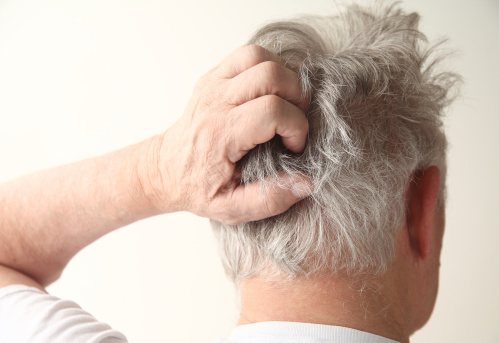What Does Plaque Psoriasis Look Like & How To Treat It
Plaque psoriasis is a common skin condition that causes red, raised patches and silvery scales on the skin. These patches can itch or hurt. This guide will explain what causes plaque psoriasis, and ways to manage it day-to-day.

A Practical Guide to Plaque Psoriasis&Cheap Treatment 2024
Plaque psoriasis is one of the most common forms of psoriasis, affecting millions of people worldwide. It is characterized by raised, red patches covered with a silvery white buildup of dead skin cells or scale. These patches are often itchy and painful, and they can appear anywhere on the body, although they are most commonly found on the scalp, knees, elbows, and lower back. This guide aims to provide a practical approach to understanding, managing, and living with plaque psoriasis.
Understanding Plaque Psoriasis
Plaque psoriasis is an autoimmune disorder, which means it occurs when the body’s immune system mistakenly attacks healthy skin cells, speeding up the skin cell life cycle. Normally, skin cells grow deep in the skin and slowly rise to the surface. This process typically takes about one month. In people with plaque psoriasis, this process may occur in just a few days because the cells don’t have time to mature. This rapid overproduction leads to the buildup of skin cells.
Symptoms of Plaque Psoriasis
The symptoms of plaque psoriasis can vary from mild to severe and can include:
- Red, raised, inflamed patches on the skin.
- Whitish-silver scales or plaques on the red patches.
- Dry skin that may crack and bleed.
- Itching, burning, or soreness around patches.
- Thickened, pitted, or ridged nails.
- Joint pain, if associated with psoriatic arthritis.
Understanding these symptoms is crucial for effective management and treatment.
Daily Management of Plaque Psoriasis
Managing plaque psoriasis typically involves a combination of lifestyle changes, skincare routines, and medical treatments. Here are some practical tips for daily management:
- Moisturizing: Regularly moisturizing the skin can help to reduce dryness, remove scales, and calm inflammation.
- Bathing: Taking daily baths can help soothe irritated skin and lift scales. It’s recommended to use lukewarm water and mild soaps.
- Avoiding triggers: Common triggers for psoriasis flare-ups include stress, smoking, alcohol consumption, and injury to the skin, such as cuts, scrapes, and bug bites.
- Diet: Some individuals find that certain foods exacerbate their symptoms. Although no definitive diet exists for psoriasis, reducing red meat, saturated fats, refined sugars, and carbohydrates may help to reduce flare-ups.
2024 Cheap Treatments for Plaque Psoriasis
Over-the-Counter (OTC) Treatments: One of the first lines of defense against mild to moderate plaque psoriasis involves using OTC products. These are less expensive than prescription medications and are readily available at most drugstores.
- Topical Corticosteroids: These are creams and ointments that reduce inflammation and redness and are often recommended for mild psoriasis. They come in different strengths, and the milder forms are available without a prescription.
- Moisturizers: Regular moisturizing is crucial in managing psoriasis. Thicker ointments and creams, such as those based on petroleum jelly or with added ceramides, can help prevent your skin from drying and cracking, reducing itching and irritation.
- Keratolytics: Products containing salicylic acid or lactic acid can help soften and remove scales. This makes them particularly useful for thick plaques.
Home Remedies: Several home remedies can also be used to manage symptoms effectively without the need for costly treatments:
- Oatmeal Baths: Soaking in an oatmeal bath can soothe itchy and inflamed skin. Oatmeal has natural soothing agents that are gentle on irritated skin.
- Turmeric: Known for its anti-inflammatory properties, turmeric can be added to food or taken as a supplement to help reduce inflammation.
- Omega-3 Fatty Acids: Increasing your intake of omega-3s, either through diet (e.g., eating more fatty fish) or supplements, can help manage inflammation associated with psoriasis.
Living with Plaque Psoriasis
Living with plaque psoriasis can be challenging, but with the right treatment and strategies for managing stress and maintaining overall health, many people with the condition lead fulfilling, active lives. Joining a support group or community can also provide emotional support and valuable information to help manage this chronic condition effectively.
Conclusion
Plaque psoriasis is a persistent, long-lasting disease, but understanding its causes and symptoms, alongside employing effective treatment strategies, can help manage the condition and reduce its impact on daily life. Regular consultations with healthcare providers, adherence to treatment plans, and a healthy lifestyle are key to managing plaque psoriasis effectively.







Recent Comments